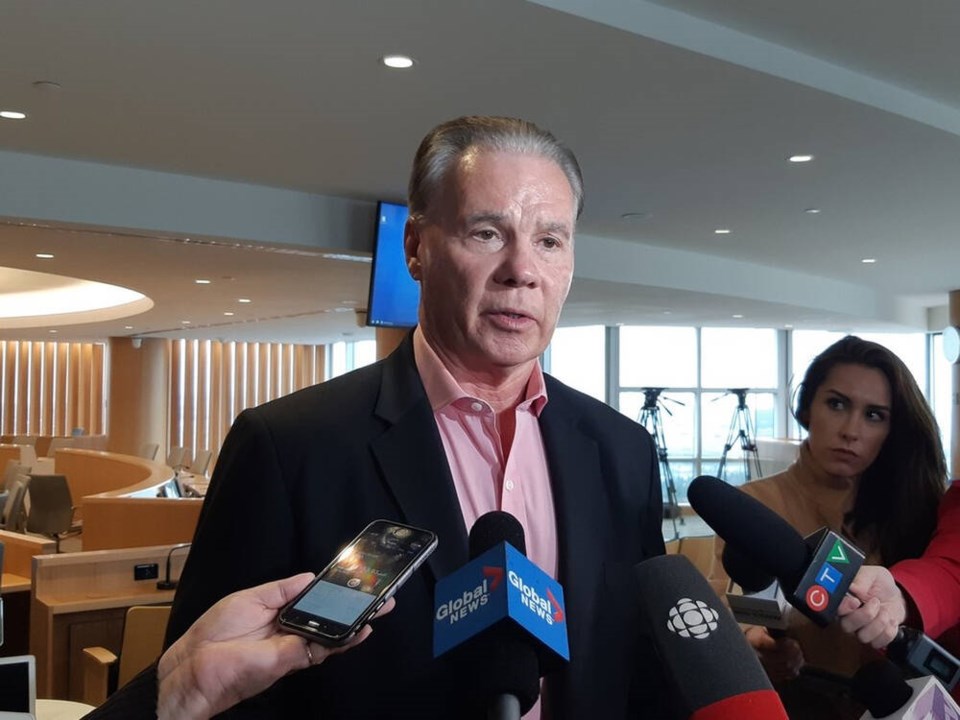VANCOUVER — Nearly 40 per cent of Delta residents trying to reach police on non-emergency lines routed through B.C.’s E-Comm dispatch centre abandoned their calls in the first half of this year, causing Mayor George Harvie to lose confidence in the 911 agency’s management.
Harvie, in a letter to Mike Farnworth, B.C.’s solicitor general and minister of public safety, demanded “immediate action” to address the problems plaguing B.C.’s 911 communications centre.
“There’s unacceptably long wait times for emergency and non-emergency calls and our problem is that often leads to abandoned calls,” Harvie said.
Delta maintains a “no call too small” policy in its approach to community policing, but the delays and dropped calls “impacts the adequacy of policing resources and public safety strategies,” Harvie added.
In his Dec. 6 letter to Farnworth, Harvie noted that in 2021 two per cent of 911 callers to Delta police hung up before receiving a response.
“My concern is, over the last couple of years is that they have not been living up to the contract” when it comes to standards for answering both emergency and non-emergency calls, he said.
“As chair of the police board and mayor of Delta, we need to ensure that the province is listening,” he added.
Farnworth was not available for an interview on Friday, but said in a statement he is aware of the Delta police department’s frustrations.
The statement didn’t directly answer questions forwarded to him by email, but Farnworth said he is “pleased to see E-Comm is acknowledging the issue and working on solutions,” which he encouraged the agency to continue doing with its other “policing partners.”
“Public safety is our top priority and we will continue to monitor developments in service delivery to ensure the demands for an effective 911 system are met,” Farnworth said.
E-Comm, which has struggled with staffing levels and rising call volumes through the pandemic and extreme weather events such as the 2021 heat dome, knows it needs to improve those wait times, said Dave Cunningham, the agency’s vice-president of communications.
“The good news, is we are generally meeting our 911 emergency-service targets,” which is something the public should take confidence from, Cunningham said.
However, he added that about 36 per cent of non-emergency calls for police to E-Comm are not police matters, which contributes to their deteriorating performance.
“When 911 call volumes are high, we have to prioritize our staff resources around 911 response,” Cunningham said. “Unfortunately, the non-emergency response times suffer.”
Last summer, E-Comm faced a staffing shortage that required an amount of mandatory overtime that the union representing its operators said put 911 as a lifeline “in crisis,” according to an open letter from Donald Grant, president of Canadian Union of Public Employees Local 8911, which represents emergency communication professionals.
Cunningham on Friday said E-Comm is “still relying on overtime more than we would like to, particularly during busy holiday periods,” which they’ve tried to mitigate by putting an emphasis in calling for volunteers to work more or encourage swapping of shifts.
E-Comm is also heavily recruiting new employees and working on the possibility of hiring call takers strictly for non-emergency calls and finding technology for those non-emergent requests for service to be registered through online reporting forms that would allow for police to call back.
“But there’s no question that we need to improve that further,” Cunningham said.
He added that E-Comm hasn’t been alone in struggling with call-response times and “is a global challenge that we’ve heard many police agencies around the world are grappling with.”
Delta police Chief Neil Dubord said some non-emergency calls his department receives relate to the public reporting possible disputes between people and delays that increase the risk of those events escalating to violence.
Harvie, who worked on the establishment of E-Comm in 1999 as assistant city manager for Burnaby, said he believes E-Comm’s mandate has become too expansive.
“When we formed E-Comm, it was never envisioned to cover all of the province,” Harvie said.
Delta police responded in December of 2021 by launching a pilot project to answer its own emergency calls between 7 a.m. and 7 p.m., which has helped, Harvie said.
Now, Delta police are considering their options to withdraw from E-Comm to find another provider for non-emergency services, similar to Surrey, Harvie said.




